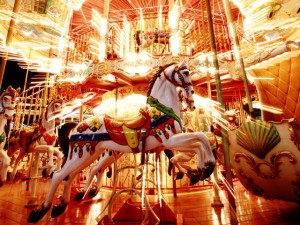Why do clients engage a financial adviser? Why do they remain in an ongoing advice relationship? Why do they continue to pay for the adviser’s services? These are the questions Dean Lombardo, Founder of Effortless Engagement and 2012 AFA Excellence in Education Award winner, sought to answer as part of a research project undertaken with IOOF early this year…
Price or value?
Even before the disallowance of the Future of Financial Advice amendment regulations, which reintroduced costly measures such as opt-in and retrospective fee disclosure statements, advisers everywhere agreed that they were experiencing increasing pressure on fees. Consumers generally underestimate the cost of providing financial advice, and traditional advice models are being challenged by cost-effective, online or ‘robo-advice’ offers.
The pricing discussion has moved from ‘what to charge’ to ‘how to deliver value’. It is widely understood that if a client perceives they are getting value for money, the actual fee is less relevant.
But while many advice businesses have attempted to demonstrate value through a steady stream of client communications and touch-points, Dean Lombardo cautions that greater activity does not necessarily translate into a greater perception of value.
“When we asked clients if they perceived they were getting value for money from their advice relationship, those that felt they had a plan and were on track to achieving their goals and objectives were twice as likely to say they got value from their adviser,” Lombardo says.
What do clients want?
At the heart, this feeling of being ‘on track’ translates to what many advice clients identify as ‘peace of mind’. But as Lombardo points out, trying to deliver something which is usually viewed as intangible can prove difficult.
“The biggest issue with peace of mind is that it’s intangible. It’s governed by emotional decisions. The Global Financial Crisis is a great example. Surveys conducted with advice clients prior to the GFC would have shown that clients felt confident about their future. Fast-forward to the middle of the GFC and many of those same clients would have rated themselves much lower. So peace of mind can be quite elastic if not based on a tangible foundation.”
Lombardo sought to try to quantify peace of mind, and identified three key components that led to a feeling of comfort and control among clients:
- Relationship and brand. “We are a people industry,” explains Lombardo, “and a strong relationship and brand helps the client to trust that the business and/or adviser will deliver on the promises they’re making.”
- Measurable progress. “Advisers and clients embark on a journey together, towards an agreed set of goals. But is the plan on track? Is the client progressing towards their destination?”
- Knowledge and empowerment. “Clients should not apply blind trust to their advice relationships – they need to have enough understanding to know what’s happening on the journey and why. This makes the client confident that, if something were to change, they know what to do next.”
“When you take all three of those components together, you move down the path of being able to illustrate peace of mind with a tangible basis behind it,” says Lombardo.
The critical element in the client-adviser relationship is that both parties understand what the destination looks like
However, it was the second component, the notion of ‘measurable progress’, that prompted Lombardo and colleague Renato Mota, IOOF General Manager, Distribution, to undertake a research project to identify whether advisers were actually delivering on what clients want.
Are advisers delivering what clients want?
“Our research found that clients’ expectations have not changed and simply the achievement of their lifestyle goals and objectives is the core measure of whether their ongoing financial planning experience has been successful,” Mota and Lombardo said in the executive summary of their research report.
Statistics from the paper, set out below, reinforce this statement:

Source: The Expectation of Advice, 2012, Lombardo and Mota
Clients were asked what defined a ‘successful ongoing financial planning experience’. An overwhelming majority (76%) said it was the achievement of core goals and lifestyle objectives.
However, when the researchers asked whether they were on track to achieving their goals, 60% of advice clients either didn’t know or were unable to answer. Similarly, 48% of advisers said they did not know or lacked the systems or information to fully determine if their clients’ plans were on track.
“The world has changed,” observes Lombardo. “Things that advisers once thought were of value to the client are now commoditised. It’s not that there isn’t a necessity for financial products, or that they are unnecessary for the client, but on their own they are essentially commodities.
“The critical element in the client-adviser relationship is that both parties understand what the destination looks like. If you don’t know the destination, all you can fall back on is product, performance and price. These factors can be viewed as ‘commoditised’ and, as a result, are easier for a client to question.
“The analysis of product is not entirely where the value lies. The value is in taking fragmented pieces of information, and consolidating that into a plan that gets the client where they want to go.”
Lombardo says that, perhaps unsurprisingly, most advisers had a system for measuring investment performance or comparing insurance premiums; very few had a system that determined the overall progress of a client towards their goals. The reason for this, says Lombardo, is linked to advisers’ attitudes towards cash-flow management advice.
The importance of cash-flow advice
According to Lombardo, cash-flow is the life blood of all financial plans. However, just 23% of advisers surveyed by Lombardo and Mota said they provided cash-flow advice to clients on an ongoing basis.
“What occurs practically, from an advice perspective, is that when an adviser provides the initial advice to a client, assuming they provide full and comprehensive advice, they will pay particularly close attention to cash-flow related issues and advice,” says Lombardo.
“What invariably happens though, as the relationship progresses, is that there is a tendency in review meetings and ongoing discussions to focus on product related advice.”
Lombardo contends that one reason for this is because advisers have traditionally been remunerated through product. “There is a historical perception that, in meetings and discussions, advisers must be seen to be active and accountable for that area in which they are being remunerated. This is further compounded by media reports and advertising, which reinforce the message to clients that financial advisers are focused on providing advice in the areas of insurance, investments and superannuation, not necessarily cash-flow, loan structuring or banking.”
He also notes that the overall financial planning industry’s investment in tools, training and technology to support advisers to have ongoing cash-flow conversations has been low when compared to traditional areas of advice. This was further illustrated through the research, with 73% of advisers who don’t, or are unable to, provide full ongoing cash-flow advice, saying this was either because of a lack of access to sufficient information or inadequate systems and procedures.

Source: The Expectation of Advice, 2012, Lombardo and Mota
“When we look at client satisfaction and clients who are on track, the only way they can definitively know they are on track is if they have an understanding of all aspects of their plan, including cash-flow.”
But Lombardo cautioned that cash-flow advice should not be about the micro-management of expenses:
“The essence of cash-flow advice is behaviour management, not micro-management. If we can coach people to help them create the habits and behaviours to give them the highest probability of working successfully within their plan structure, which ultimately leads to success, we’re on a winner.”
Ongoing contingency advice
The other area of financial advice that appears to be lagging behind in terms of being an ongoing service offered by advisers is contingency advice.
Traditionally, contingency plans involve personal insurance protection, asset protection and estate planning. Even non-risk specialist advisers recognise the importance of wealth protection within a holistic financial plan. However, Lombardo and Mota found that the majority of advisers did not have a formal process for continually reviewing the progress and needs of clients relative to insurance and estate planning goals. Instead, this advice was normally based on an ‘as needs’ approach.

Source: The Expectation of Advice, 2012, Lombardo and Mota

Source: The Expectation of Advice, 2012, Lombardo and Mota
“Someone who specialises in risk may have spectacular results in terms of delivering contingency advice reviews, but when you break that out into the broader advice community, that isn’t always the case,” Lombardo says.
clients have a relatively low awareness and therefore understanding regarding their overall contingency planning
Clients were asked if they actually understood why they had a particular amount or type of insurance. What was clear, says Lombardo, is that clients have a relatively low awareness and therefore understanding regarding their overall contingency planning. In this environment, Lombardo argues that it is easy for insurances to be seen as expense items as opposed to core solutions.
“Just having the cover won’t make you feel good unless you know what it’s there for and what to do with it if the worst should happen. It’s not the dollar amount, it’s tying the cover back to the client’s core goals and objectives – their ultimate measure of success.
“These figures highlight a trend that the ongoing engagement piece is missing the mark. It should be about ensuring clients understand where they are in terms of the journey towards their stated goals, what’s happening and whether they on track to reaching their destination.”
The value of giving clients what they want
Lombardo says there are numerous benefits to delivering to client expectations, beyond the obvious positive client survey ratings.
Moving from price to value
“Focusing on the client and their goals takes the focus off product as being the core measure of success and value,” Lombardo explains.

Source: The Expectation of Advice, 2012, Lombardo and Mota
If the client truly believes that their adviser’s role is to manage and administer their insurance, investments and superannuation, then the advice relationship is subject to the forces of price, product and performance. On that basis, says Lombardo, there will continue to be pressure on fees.
However, if the adviser is perceived to be delivering true value, by delivering to the client’s measure of success, the client is less likely to question the price. In some cases, advisers may even be able to increase their fees (see below).
Clients will pay more
“Clients are saying that if advisers deliver advice in the areas that matter to them, they will gladly pay more. This flies in the face of everything we hear and read about fee pressures on advisers.”
According to Mota and Lombardo’s survey of clients, 97% said they would like ongoing cash-flow advice, and 86% of clients not currently in receipt of this type of service said they would be willing to pay more than they currently did to access this advice.
Cash-flow advice also represents a significant opportunity for advisers to engage with the non-advised population.

Source: The Expectation of Advice, 2012, Lombardo and Mota
The graphic above represents the views of clients in an advice relationship. Despite having an ongoing contact with their adviser, they were still not overly confident that they had a good handle on their day to day finances.
“Clients are struggling in terms of cash-flow and their understanding of it,” says Lombardo. “If clients of advisers are struggling in this area, imagine what’s happening among the general public.”
Referrals and retention
“People who are on track, who know where they are relative to their destination, are around six times less likely to be influenced by external noise,” reveals Lombardo.

Source: The Expectation of Advice, 2012, Lombardo and Mota
“If a client is uncertain about whether they’re achieving their goals, or does not believe they are on track, they are more easily influenced. They may, for example, feel very comfortable with their super and investments – because, as we found, these are the areas that advisers usually focus on during reviews – but that element of doubt creeps in around their cash-flow. If they’re getting bills for insurance and they feel they’re going backwards, they’re much more likely to listen to messages telling them they can get something they believe is the same for less.
“The world has changed, and the risk market is a great example. Ten years ago, clients couldn’t take out life insurance on their own; they needed someone to hold their hand throughout the journey. As much as we would like to think that is still the case today, there are a plethora of options out there that imply that consumers can do it themselves, even if we believe their probability of success is lower as a result.
“And again, if you’re not teaching your clients about the right behaviours, they’re going to move from receiving consolidated advice to fragmented product solutions. They will cherry pick products or services that may not be consistent with their original plan, and won’t get them to their destination. Ultimately the client’s core measure of success should also be ours.”

Dean Lombardo is the founder of Effortless Engagement, a specialist training and consulting business developing high performing teams and building sustainable business models supported by a clear vision of success. Dean has experienced the financial planning industry from just about every angle, as a business owner, corporate executive and financial planner. He is the author of the best-selling “Benchmarking – An Adviser’s Guide to the Ultimate Client Engagement Model”. In 2012 he was awarded the Association of Financial Advisers Excellence in Education Award.
In 2014, IOOF Investment Management, in conjunction with Effortless Engagement undertook research involving both financial advisers and ongoing financial advice clients. A total of 58 practices, encompassing 192 advisers were surveyed, along with 312 existing, ongoing financial advice clients. The findings were consolidated into a White Paper by Dean Lombardo and Renato Mota, General Manager, Distribution at IOOF. The White Paper is entitled The Expectation of Advice, and is available from your IOOF BDM or can be downloaded by clicking here. riskinfo thanks IOOF and Effortless Engagement for the use of their research in this story.
Contact or follow the author: Website
















